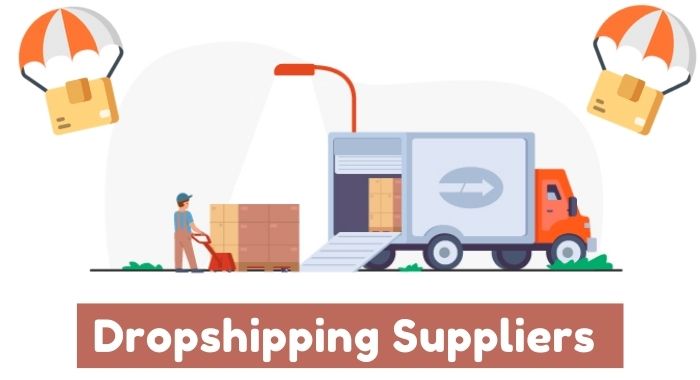Is Dropshipping Legal In Nigeria?- Everything you need to know
Yes, dropshipping works in Nigeria.
Nigeria being a developing nation, it’s sometimes difficult for citizens to know the wrongs or rights pertaining to the constitutional laws.
The same goes for the popular and rising business model in Nigeria – dropshipping.
Starting a dropshipping business in Nigeria requires some form of legal documentation just like every other type of business.
But the big questions are…
“What kind of legal documents do I need to start?”
“Do I need to have these documents before starting out?”
In this post, I will explain to you everything you need to know about starting a dropshipping business within the legal confines of Nigeria.
How Does Dropshipping Work In Nigeria?
Dropshipping is a business model in which e-commerce entrepreneurs sell products without having to carry any inventory.
When a store owner receives an order from a customer, they simply contact the supplier, who will then ship the products directly to the customer’s door.
For this to work, the dropshipper (which is you) needs to have an online platform that allows people to place orders.
You could build an e-commerce store and list products from verified dropshipping suppliers or you can as well open an online on e-commerce giants like Jumia and Konga to start your dropshipping business.
The platform you decide to use has its pros and cons.
But you don’t have to worry about that because when push comes to shove, what counts is how well you are able to promote your business and manage it.
Dropshipping is a great way to start an online business with little up-front investment, and it’s perfect for entrepreneurs who are looking for a hands-off approach to running their business.
Dropshipping has several benefits. There is literally no need to carry inventory or worry about shipping logistics, as the supplier takes care of those tasks.
This can save a significant amount of money and time. It’s easy to get started with dropshipping as it requires little upfront investment.
Dropshipping can be a very profitable business model, as there is often a high margin between the wholesale price and the retail price.
Top Dropshipping Suppliers In Nigeria
The success of your dropshipping business depends on the supplier you have.
Not all dropshipping suppliers are equal. Some deliver quality products in a timely manner while some do the opposite.
Getting a good supplier that delivers both quality and speed is one of the most important activities you will be engaged in when starting out.
To make this post exhaustive, I compiled a list of top dropshipping suppliers that deliver both quality and speed for your business.
1. AliExpress + Alidropship
The Aliexpress platform is a great way to source products for your store. Featuring over 100 million products, Aliexpress for dropshipping is sure to have what you’re looking for.
As a matter of fact, it is the first-choice dropshipping supplier for online entrepreneurs all over the world.
This is because the platform aggregates different suppliers who have experience with the dropshipping business model.
With its user-friendly interface, you can easily locate the products of your choice at competitive prices.
AliExpress allows you to import products directly to your online store and choose from millions of products at your fingertips through the use of a plugin called Alidropship.
This way, you don’t have to manually populate your online store with products and manually write out product descriptions.
2. Spocket
Spocket is a dropshipping platform that allows users to order products from US and EU suppliers and have them shipped directly to their customers.
The platform also provides users with access to exclusive discounts and offers from suppliers, as well as real-time tracking information for orders.
With Spocket, you can create your own online store in minutes, without any coding or design experience. Spocket provides everything you need to start your dropshipping business, including a customizable website, product catalogue, and payment gateway.
3. CJ Dropshipping
CJ Dropshipping is a popular dropshipping service that allows you to sell products online without having to carry inventory.
You can choose from a wide range of products and have them shipped directly to your customers.
With CJ Dropshipping, you can easily find a reliable supplier in China that can provide you with products at a good price.
Once you have found a supplier, you will need to set up a website and start marketing the products to customers.
4. Sellvia
Sellvia is a new dropshipping platform that promises to make it easier for businesses to get started with selling online.
The company provides a centralised platform for managing inventory, orders and shipping, and also offers a range of features to help businesses scale up their operations.
Sellvia offers a wide range of products, from electronics to fashion, and provides suppliers with a simple way to connect with dropshippers
Dropshippers can use Sellvia to find products at wholesale prices and then sell them online at a markup.
Top Legal Documents Every Dropshipper Must Have in Nigeria:
As with any type of business, dropshipping in Nigeria requires legal documentation.
But do you need to have every legal document in place when starting out?
The simple answer is… “It depends on you”
When you’re just starting out your dropshipping business from the comfort of your home, you may not need to have all legal or business law documents with you.
But, it might pose a problem in the long run either with the authorities or with anyone who might want to legally plead a case against your business.
Having some form of legal documentation protects your business.
Besides, it’s mandatory for every business to be legally registered with the right authorities.
So, I advise that you get at least one or more of these legal documents when you start dropshipping especially if you have a vision of having a sustainable business that stands the test of time.
1. Business name registration
This is usually the first step every entrepreneur in Nigeria must take to start a business.
Registering your business with Corporate Affairs Commission doesn’t just prove that your business exists, it also shows that you are not a scam.
After registration, you will be given a certificate of Incorporation which you can display as a trust factor on your website and social media handles at the early stages of your business.
2. Sorting tax
Sorting your taxes on time in accordance with the FIRS will save you a whole of trouble.
It is mandatory for every individual in Nigeria to pay taxes to the Government. Business entities aren’t exempted.
To have a problem-free dropshipping business, you need to have a Tax Identification Number (TIN).
TIN is a set of unique numbers issued by the Federal Inland Revenue Service (FIRS) to individuals or businesses. There are a few reasons why you will need to have a tax identification number.
Firstly, without TIN, you can’t register your business. As I said earlier, it’s mandatory for every individual to pay taxes. Evading tax is a serious offence under the law.
Secondly, it’s needed to obtain a tax clearance certificate which proves that you pay your tax when due.
Thirdly, in the event that you need a business loan from the government, you be asked for your tax identification number.
So, if you intend to start a dropshipping business and hope to do so for a long time, you need to get your TIN.
3. Terms & Conditions
Terms and conditions are the legal agreements between a company and its customers.
These agreements spell out the rights and responsibilities of each party and can include things like warranties, return policies, and user agreements.
As with any business, it is important to have terms and conditions in place in order to protect yourself from potential legal issues.
Having a well-written set of terms and conditions can help to ensure that your customers understand your policies and procedures, and can help to avoid any misunderstandings or disputes that may arise.
4. Privacy policies
Most websites have a privacy policy that outlines what information they collect about users, how it is used, and under what circumstances it may be shared.
Most companies handle customer data in some way, whether it’s through collecting contact information, processing payments, or managing accounts.
The same goes for your dropshipping business. You are going to deal with customers’ data.
You need to have a policy that’s compliant with the Data Usage Regulatory laws in Nigeria.
Without a privacy policy, you leave your business open to legal action if there are any breaches of customer data. Additionally, customers are more likely to trust businesses that have clear and concise privacy policies in place.
5. Disclaimers
When starting out your dropshipping business, you would need a disclaimer to protect your business from liabilities.
In an increasingly litigious society, businesses need to protect themselves from frivolous lawsuits.
Disclaimers help to do this by specifying what the business is not responsible for.
For example, you might include a disclaimer that states the user is responsible for his or her own safety while using the product.
This can help to shield your business from liability if someone is injured while using the product.
6. Shipping conditions
When goods are ordered from your store, your customers expect to receive the items in good condition and in a timely manner.
The shipping terms and conditions are the rules that dictate how your store will ship goods, and what your customers can expect in terms of delivery time and condition of the merchandise.
As a dropshipper, you need to understand your supplier’s shipping terms and conditions before setting yours. This helps you to manage the expectations of your buyers.
7. Refund policy
A refund policy is a statement that outlines the conditions under which a customer may receive a refund for a purchase.
In the e-commerce world, refunds are non-avoidable. There will always be a time when your customer will request a refund.
Your refund policy should outline what types of refunds are available, how the customer can request a refund and the timeframe in which the refund will be processed. A refund policy may also state that certain items are not eligible for a refund.
Frequently Asked Questions (FAQ)
Is dropshipping a scam?
No, dropshipping isn’t a scam. It’s a business model whereby entrepreneurs sell products without having to manage an inventory.
Can a dropshipping business be sued?
Yes, a dropshipping business can be sued. This is why it’s important to have your business registered with the government. This separates you from your business.
Do I need an LLC to start dropshipping?
The answer is YES if you want to receive payment in USD by using a payment gateway like Stripe. No, if you want to sell in local currency. As long as you have your business name registered and other necessary legal documents, you can start dropshipping.
Is Dropshipping Legal in Nigeria? Conclusion
Yes, Dropshipping is a legal and profitable business model in Nigeria when done right.
All you need to do is to get a reliable supplier and register your business with the appropriate authorities. Then promote your business.
Constant promotion coupled with an amazing product will make you successful in the business model.

![How to Start a Dropshipping Business In Morocco [Full Guide]](https://smartbizfreedom.com/wp-content/uploads/2022/07/oberlo-vs-Salehoo-20.jpg)


![How To Sell and Dropship on Jumia [Step by Step Guide]](https://smartbizfreedom.com/wp-content/uploads/2020/03/Nigeria-2.jpg)